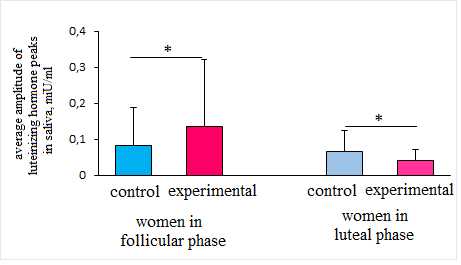
A pheromone is a species-specific substance that is secreted into the environment by one animal, enters the body of another animal of the same species through the nose, and causes changes in its behavior or physiology. The term "pheromone" was first proposed in 1959 to refer to a number of biologically active compounds in insects, and later in other animals, similar to hormones, but having their own distinctive properties. Depending on the effect they produce, pheromones are divided into four categories - primer, releasing, signaling, and modulating.
It can be assumed that the effect of pheromones in humans and other mammals will be similar, but there is still debate about whether our species secretes pheromones at all. This is largely due to the fact that for a long time the power of the human sense of smell and its impact on our lives was underestimated, while research in recent years, as well as the consequences of the loss of smell from COVID-19, allow us to rethink the role of smell in human life. However, to date, no substance has been identified that has pheromonal activity in humans.

It has been previously shown that the smell of male sweat can affect the rate of ovulation in women in the first half of the cycle due to changes in the secretion of luteinizing hormone (LH). Scientists from the A.N. Severtsov Institute of Ecology and Evolution of the Russian Academy of Sciences not only reproduced this effect using a different method of measuring LH, but also showed that this effect is much broader.
According to one of the authors of the study, Tatyana Laktionova, a woman's physiology is subject to the cyclical nature of the menstrual cycle, so we assumed that a woman's body reactions to male body odor may also depend on the phase of the menstrual cycle (follicular or luteal).
To test this hypothesis, the authors of the study collected and masked the body odor (sweat) of several men, after which 29 female volunteers were asked to sniff it several times in the first or second half of their menstrual cycle. During the sniffing process, painstaking work was carried out to select 48 saliva samples from each participant to measure hormones. In addition, the participants filled out special questionnaires to determine their emotional state throughout the testing. The results of the study showed that male body odor can participate in regulating the length of the women's menstrual cycle by changing the frequency and amplitude of LH peaks, and these changes depended on the phase of the participants' menstrual cycle (Fig. 1).
In addition, the body odor of men affected the secretion of the stress hormone cortisol in women. It was curious that the body odor of men increased the secretion of cortisol in young women, unlike in older women.
Project manager Vera Voznesenskaya explains: “The number of substances contained in human sweat is truly enormous, so identifying specific human pheromone substances has long been difficult. In our work, we actually created a convenient method for testing individual components of sweat, which in the future may help in identifying a specific substance or substances responsible for regulating the menstrual cycle of women.”
The results of the study were published in the journal Brain Sciences.
